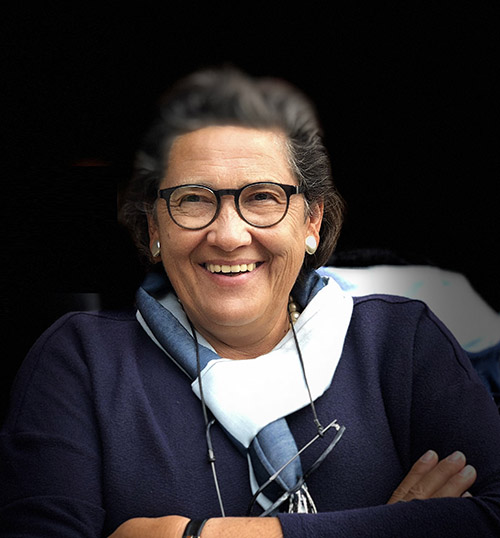Prof. em. Dr. Hannelore Daniel
Hannelore Daniel held the position of Chair of Physiology of Human Nutrition at the Technical University of Munich (TUM), Germany. Her main research interests are control mechanisms in mammalian metabolism; studied in model organisms and in humans by using a diversity of cell and molecular techniques and metabolomics for more comprehensive and better phenotyping. Some of the research relates directly to approaches for personalised nutrition. Hannelore is a nutrition expert by training and has worked in Germany, UK and USA. She is a member of the German National Academy of Sciences and an advisor for national and international funding agencies, research centres, companies and the government. Hannelore Daniel has published around 450 scientific papers and reviews and received numerous scientific awards.
What is your current role?
I would call myself a Freelancer- although I left university, I am still on a number of scientific boards in academia and industry. I am also a ‘private lecturer’ who gives lectures, for example to scientists in R&D teams in industry. That is really fun because they tune in, ask questions and are highly motivated to get as much out as possible. I also have about 40 scientific presentations to do this year. And, I spend time to carefully read and dig into the scientific literature.
What do you think are the key skills a scientist needs?
Commitment and passion and a certain level of creativity. I would argue that the alternative for what I became as a scientist in nutrition research would have been to be an artist or an architect. Like a good artist, you need the right skills and to learn how tools work, and then you shape your skills and you learn to bring your science to the audience.
What is your favourite thing about your role as a leader in nutrition research?
It was my ambition to get people interested in and committed to nutrition research. And, I was part of a successful transformation in the move of nutrition from a ‘kitchen science’ to a new level that is of the same quality as cell and molecular biology, immunology, you name it. The other rewarding aspect is that I helped a number of youngsters, including PhD students and Post Docs, to make a career in nutrition science and industry. In this respect, science is like a big family.
What do you think makes a great leader?
It is about inspiring people. It is not only the number or quality of papers or the h-index, it is more. A good scientist is like a good artist, you recognise them by style and subject and appearance. That is what you should go for. Be yourself, be a passionate person, show persistence and be the engine for your team. As a leader, you realise what the strengths and weaknesses are of your team members and how you combine them to build your team, and how you can motivate your team to work for a common goal: to produce good science and that your whole team (not only you) is recognised.
What do you think is the biggest difficulty one faces when trying to excel as a leader in the field of nutrition?
Nutrition research has not completely lost the stigma of ‘kitchen science’ and is not considered to be a big science, although things are much, much better than 20-30 years ago. To find recognition for your work is thus a bit harder. However, if you demonstrate that you burn for your subject, luck comes and knocks on your door and opens it for a successful career.
If you could give one piece of advice to somebody wanting to excel as a Leader in the field of nutrition research, what would it be?
My recommendation is to dig a deep hole, show passion and persist until you have reached the ground. You can handle your weaknesses much better if you know what your strengths are.
Get a good feeling for what you really want to do and apply an open-minded approach. Ask for advice and ask for opportunities to work with the current leaders in your field.
Who was your nutrition and/or leadership inspiration and why?
The true inspiration came when I did my first project as a diploma-student. What was most important for me and my entire career was that I always got a lot of freedom to pursue my own ideas in a very helpful environment.
Interview conducted and edited by Fiona Malcomson


